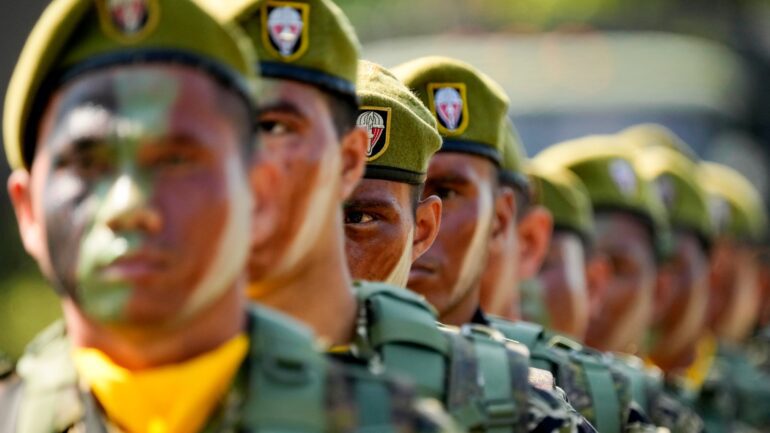TL;DR:
- Defense Secretary Gilberto Teodoro Jr. has issued an order for all defense personnel and the military to refrain from using AI-powered apps for generating personal portraits.
- Concerns are raised about the security risks posed by these apps, including identity theft, social engineering, and phishing attacks.
- Teodoro emphasizes the potential misuse of these seemingly harmless AI applications, citing a reported case.
- The directive underscores the importance of vigilance in the digital age and adherence to the Philippines Defense Department’s values and policies.
Main AI News:
In an era defined by technological advancements, the Philippine defense establishment is taking proactive measures to safeguard national security interests. Defense Secretary Gilberto Teodoro Jr. recently issued a memorandum on October 14, instructing all defense personnel and the 163,000-strong military to refrain from using digital applications that leverage artificial intelligence (AI) to generate personal portraits. The rationale behind this move is the recognition of potential security risks associated with these AI-powered tools.
The backdrop for this directive is a dynamic one, with Philippine forces actively engaged in combating long-standing communist and Muslim insurgencies while simultaneously asserting territorial sovereignty in the contentious South China Sea. The memo, which has been circulating online in recent days, was confirmed as authentic by the Department of National Defense, though it did not delve into the specifics that prompted Teodoro’s decision.
Teodoro’s concern centers around a specific type of digital app that requires users to submit a minimum of ten images of themselves. This application then employs AI to create a “digital persona” that convincingly simulates a real individual’s speech and movements. However, as Teodoro underscores, the allure of these seemingly harmless and entertaining AI-powered applications conceals significant privacy and security risks.
He further elaborates, “This seemingly harmless and amusing AI-powered application can be maliciously used to create fake profiles that can lead to identity theft, social engineering, phishing attacks, and other malicious activities. There has already been a report of such a case.” It’s a stark reminder of the potential harm that can emanate from the misuse of AI technology.
In light of these concerns, Teodoro’s directive is clear and unequivocal. He orders all defense and military personnel to “refrain from using AI photo generator applications and practice vigilance in sharing information online.” Additionally, he emphasizes that their actions should align with the core values and policies of the Philippines Defense Department.
Conclusion:
The Philippine defense establishment’s decision to caution against AI apps due to security concerns signifies a growing recognition of the risks associated with these technologies. In a market where AI-driven applications continue to proliferate, this move highlights the need for heightened vigilance and security measures to protect against potential threats such as identity theft and social engineering. It also underscores the imperative for businesses in the AI sector to prioritize security features and promote responsible use of their products.

